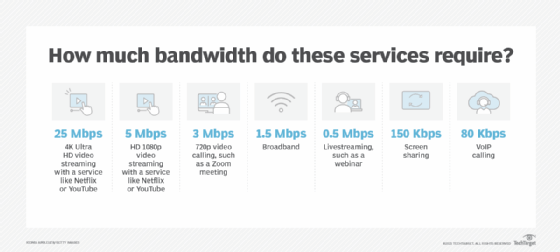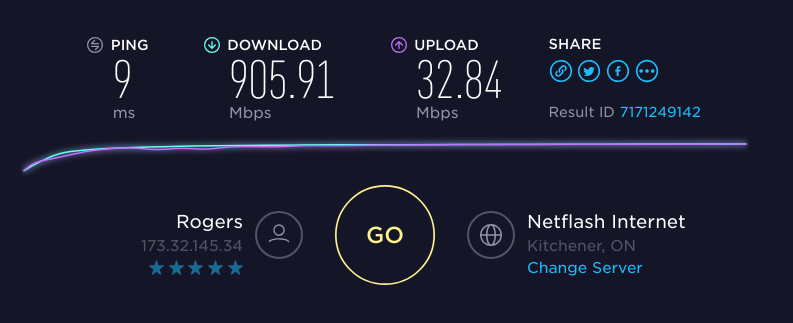Comparing Internet Service Providers: Who Supplies the Best Megabits Per Second?
Comparing Internet Service Providers: Who Supplies the Best Megabits Per Second?
Blog Article
Just How Megabits Per Second Effect Your Online Activities
The concept of megabits per second (Mbps) plays an essential function in shaping our on the internet experiences. Greater Mbps can boost performance and decrease interruptions, while poor speeds might foster disappointment and inefficiency.
Recognizing Megabits Per Second
When considering internet rate, it's vital to understand the concept of megabits per second (Mbps), which acts as a typical dimension for information transfer rates. This metric measures just how much information can be transferred over a web link in one second, offering a clear understanding of efficiency abilities - Megabits Per Second. For context, one megabit is equivalent to one million little bits, and Mbps is typically made use of to reveal bandwidth for different on-line activities
A greater Mbps shows a faster internet connection, enabling users to perform tasks such as downloading data, browsing websites, and taking part in online video gaming more efficiently. Typical browsing needs around 1-5 Mbps, while streaming high-definition video might demand 5-25 Mbps. Understanding these needs is critical for identifying the ideal internet speed needed for details activities.
Additionally, the number of devices linked to a network can impact general performance. Several customers streaming, video gaming, or downloading concurrently can strain available data transfer, resulting in slower speeds - Megabits Per Second. Reviewing personal online behaviors and demands is crucial in picking a net strategy that straightens with one's demands, making certain a smooth electronic experience
Streaming and Buffering Issues
Streaming high-def content has actually ended up being a staple of contemporary on-line home entertainment, yet it is usually come with by annoying buffering issues. These disruptions can dramatically diminish the watching experience, leading to frustration and prospective loss of audience interaction. Buffering takes place when the information transmitted from the streaming solution is not obtained swiftly sufficient to preserve a smooth playback, typically because of inadequate net speed determined in megabits per second (Mbps)

In addition, real-time streaming can be impacted by network congestion, which happens when numerous devices share the very same transmission capacity. Maximizing link rate and making certain sufficient Mbps is vital for a smooth streaming experience. As streaming services remain to develop, recognizing the effect of Mbps on buffering problems remains important for customers seeking nonstop home entertainment.
Online Video Gaming Performance
The influence of internet rate on on-line tasks expands past streaming, substantially influencing on-line pc gaming efficiency. In affordable pc gaming, reduced latency and high data transfer are vital for a seamless experience. A fast link lessens lag, allowing gamers to respond quickly to in-game events, which can be the distinction in between success and loss.
Data transfer, measured in megabits per second (Mbps), plays an essential function in supporting numerous tools and video gaming systems at the same time. Inadequate bandwidth can result in dropped connections or decreased video game quality, adversely impacting gameplay. As an example, on the internet multiplayer games need significant data transfer, specifically throughout peak video gaming hours when numerous players are online.
Fast-paced first-person shooters require higher rates to keep responsiveness, while turn-based method games might operate reasonably well on lower rates. As on the internet gaming proceeds to progress, with increasing visual fidelity and even more complicated multiplayer atmospheres, the demand for greater Mbps will only increase.
Video Conferencing Top Quality
In today's digital landscape, video conferencing quality is greatly influenced by net rate, especially in regards to data transfer and latency. Top notch video calls need adequate transmission capacity to transmit sound and video clip information effortlessly. Normally, a minimum of 1.5 Mbps upload and download speeds is advised for common interpretation video clip, while high-definition video conferencing normally requires at the very least 3 Mbps.
Latency, or the delay between sending out and receiving information, also plays an essential function in the user experience. Greater latency can lead to echo, lag, and disjointed interactions, which can prevent cooperation and interaction throughout conferences.
In addition, several individuals in a video meeting can stress readily available data transfer, requiring also greater speeds. Network congestion, typically triggered by simultaneous tasks like streaming or downloading, can even more weaken video top quality. Hence, for organizations relying upon video clip conferencing for remote collaboration, understanding the connection in between megabits per second and overall communication quality is essential for preserving performance and boosting digital communications.
Picking the Right Web Plan
Selecting a proper internet plan is essential link for ensuring optimal performance in different online activities, especially in setups that require high data transfer, such as video clip conferencing and online gaming. visit Megabits Per Second. When considering an internet plan, it is vital to assess both the rate and information allowance to match your particular usage requirements
For homes with multiple users taking part in synchronised tasks, a strategy providing higher megabits per second (Mbps) is suggested. Typically, a minimum of 25 Mbps appropriates for typical streaming and surfing, while strategies going beyond 100 Mbps are more suitable for more extensive tasks. Furthermore, think about the nature of your online tasks; video conferencing needs at the very least 1.5 Mbps post rate, while on the internet gaming might need a reduced latency however consistent connection.
Limitless information strategies can avoid throttling and interruptions, specifically if heavy use is anticipated. By thoughtfully selecting a net plan customized to your needs, you can improve your on the internet experience, making sure smooth, uninterrupted accessibility to your favored tasks.
Verdict
To conclude, the value of megabits per second (Mbps) fit on the internet activities can not be overemphasized. Higher Mbps facilitates seamless streaming, decreases buffering, improves pc gaming experiences, and ensures top notch video conferencing. Alternatively, inadequate data transfer can bring about frustrating interruptions and reduced performance throughout different tasks. Therefore, a detailed understanding of individual or home Mbps requirements is necessary for picking an ideal web plan that dig this properly supports varied online tasks and customer needs.

Typically, a minimum of 25 Mbps is appropriate for conventional streaming and surfing, while strategies surpassing 100 Mbps are preferable for even more intensive tasks. In addition, consider the nature of your online activities; video clip conferencing needs at the very least 1.5 Mbps publish speed, while on the internet pc gaming may need a reduced latency yet consistent link.
Report this page